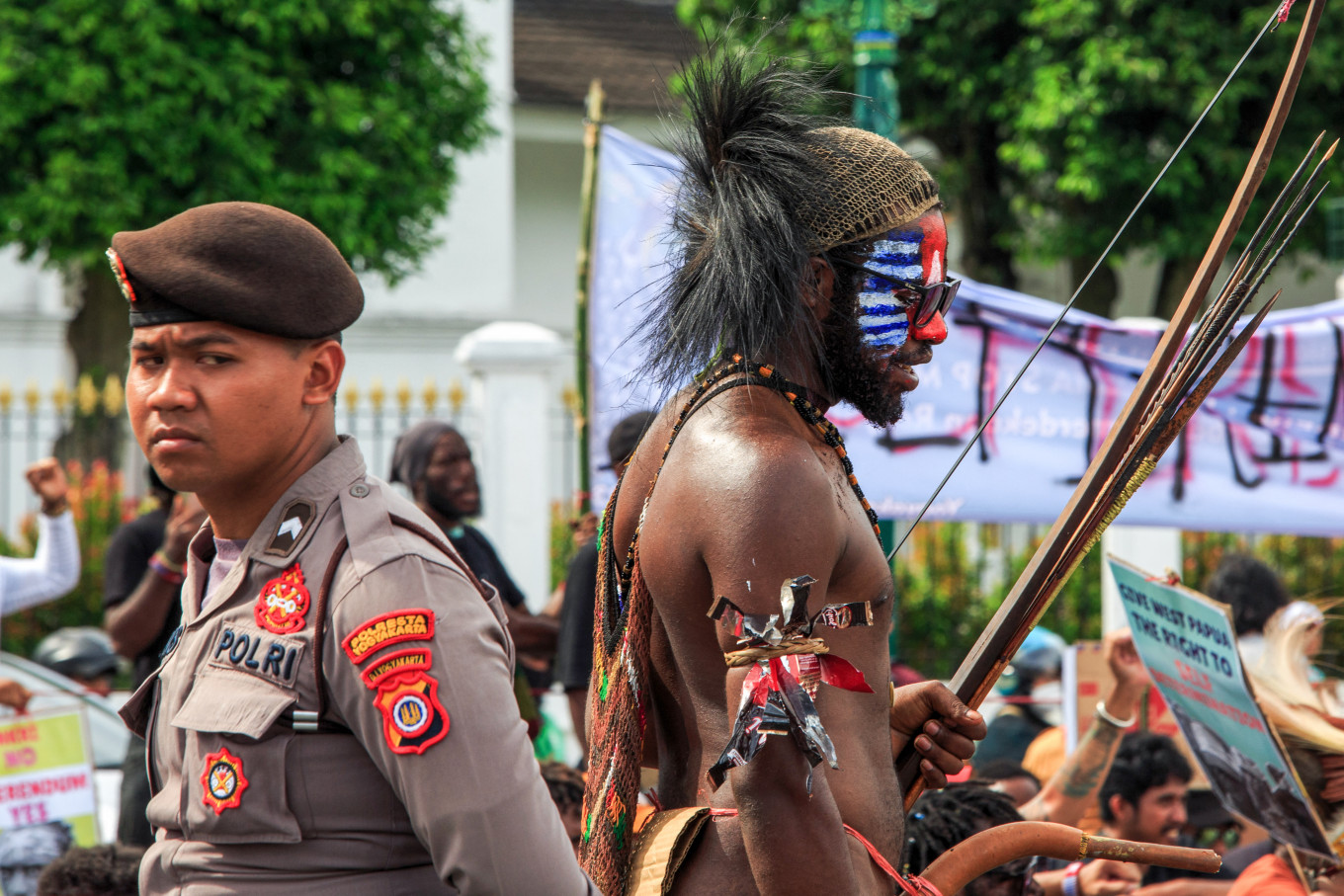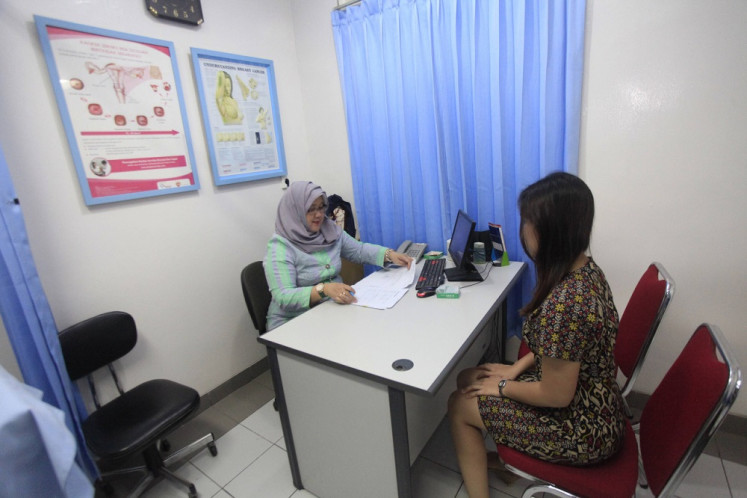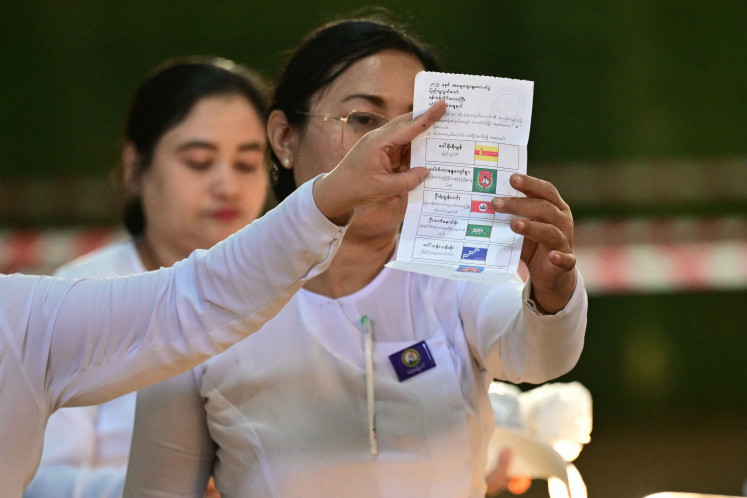Popular Reads
Top Results
Can't find what you're looking for?
View all search resultsPopular Reads
Top Results
Can't find what you're looking for?
View all search resultsMilitarizing Papua
The military's recognition of the OPM by its self-declared name is more than mere semantics, and we can expect an escalation in its operations to quell the separatist group fighting for an independent Papua.
Change text size
Gift Premium Articles
to Anyone
B
race for more violence in Papua following the Indonesian Military (TNI)’s decision to call the Free Papua Organization (OPM) by its given name, eliminating the euphemisms it used in the past to avoid recognizing the group in the country’s easternmost region as well as its separatist cause.
The TNI had avoided using both the group’s full name and its abbreviation to date, instead calling it a separatist terrorist group (KST) in Papua.
The National Police even avoids the term “separatist” altogether and still refers to the group as an armed criminal gang (KKB), with most local media following the police’s designation in related coverage.
This change by the TNI is likely to be more than semantics, as it has operational as well as political implications. For one, it is almost certain to mean increased militarization of Papua, a process that has been underway for much of the past decade as the government struggles to contain the OPM’s growing threat.
On April 10, TNI chief Gen. Agus Subiyanto announced that the military would refer to the group by its self-declared name from that day forth. He made no distinction between OPM and its armed wing, the West Papua National Liberation Army (TPNPB), which has clashed with security forces in the territory.
By accepting the OPM’s given name, Agus said the TNI was declaring its recognition as “a state within a state”, which could not be tolerated. “We will not remain silent. These are gun-toting combatants,” he added.
According to military analysts, referring to OPM members as armed combatants means that security forces should not hesitate in taking them down, which is in compliance with international humanitarian laws and rules of engagement.
It would be vastly different if they were considered criminals however, as the police have designated.
President Joko “Jokowi” Widodo has not weighed in on how to address the OPM. Although the government designated it as a terrorist organization in 2022, calling it a “criminal gang” means that dealing with the rebels falls to the police, rather than the military.
Technically, this means that the police would lead any counterterrorism operation, with the military playing backup. In reality though, the military is running its own operation to go after the rebels, independent of the police.
Politically, the euphemism works to prevent the internationalization of the Papua conflict. Indonesian diplomats have used the police’s KKB designation at international forums, indicating this is a strictly domestic issue in which other nations should not meddle.
Tension has been simmering in Papua over the past year, with increasing clashes between Indonesian security forces and separatist rebels, with the inevitably growing toll of civilians among the casualties. There have also been reports of human rights atrocities committed by both sides.
The escalation means that Jokowi’s economic and welfare approach to the conflict has not had the intended effect.
Since taking office in 2014, he has visited the region nearly 20 times, but the economic infrastructure his administration has built, including roads connecting remote towns in the jungle region, has benefited migrants more than indigenous Papuans.
It’s not clear if Agus had Jokowi’s clearance to call the OPM by its name.
If this change sticks, it can dramatically change the situation on the ground. The recognition of the OPM as a separatist group will effectively hand over the fight to the TNI and by extension, our diplomats will also have to come up with a new strategy to prevent the conflict’s internationalization.
The early initiatives at dialogue made by President Jokowi have petered out, to be replaced by increasing clashes between the rebels and security forces, though it must be said that designating the OPM as a terrorist group in 2022 already narrowed the room for further dialogue.
Now, with the TNI bent on crushing the OPM, that space may have closed for the foreseeable future.











